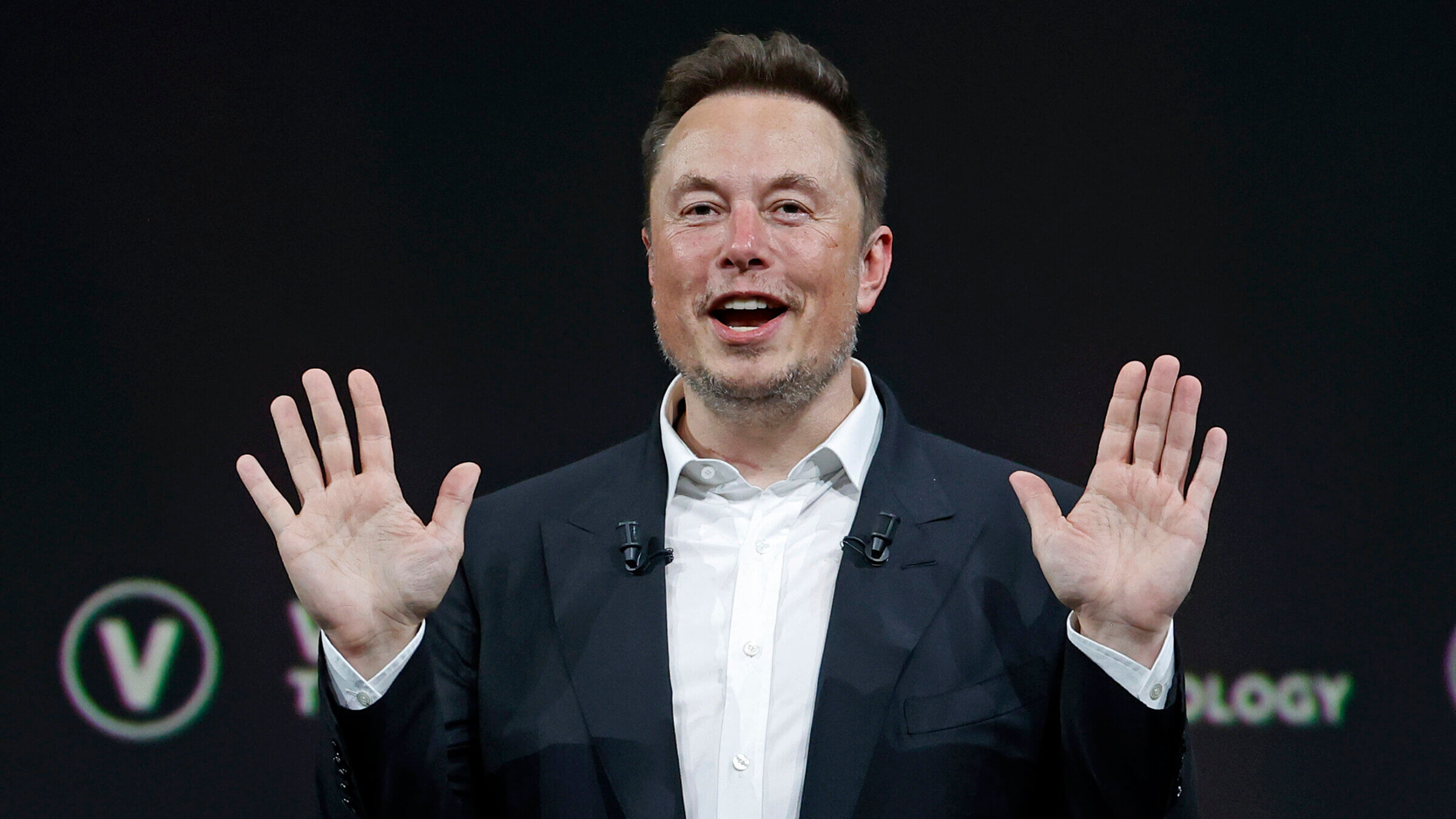Why are all these Jewish leaders groveling to Elon Musk?
In what was ostensibly discussion of online antisemitism led by Ben Shapiro, Jewish leaders ignored rising rates of antisemitism on the platform

Elon Musk, CEO of Tesla and X. Courtesy of Getty Images
You’d think that a roundtable discussion of antisemitism on X — the platform formerly known as Twitter — would address the accusations that Elon Musk’s free speech policies have led to rising rates of antisemitic hate speech on the platform. Or maybe Musk’s own disturbing comments about Jews. But on Thursday, when Ben Shapiro gathered a crew of Jewish luminaries including former Israeli president Reuven Rivlin, political activist Natan Sharansky and former Harvard professor Alan Dershowitz, everyone was nothing short of fawning.
Instead, the Jewish leaders spent their time tossing softballs to Musk — and groveling. Not a single person disputed his unfounded assertion that antisemitism on Twitter has significantly decreased since Musk’s takeover, despite numerous studies saying that hate speech, including antisemitism, has risen on the platform. Several even disavowed the Anti-Defamation League, which Musk is publicly feuding with, presumably in an attempt to curry favor.
They all tried to reassure the tech mogul that they think he’s an upstanding guy who definitely isn’t antisemitic and, by the way, would he please — pretty please, if it’s not too much trouble — consider instituting the International Holocaust Remembrance Alliance definition of antisemitism on X? (“It may already be what we’re doing,” Musk said. “I’ll take a look.”)
Musk is indisputably a powerful man, and it’s not news that he has enormous influence over world events. Starlink, Musk’s satellite internet, has been pivotal in Ukraine’s war with Russia, and when Musk considered suddenly withdrawing service, numerous international officials desperately sweet-talked the mercurial tech mogul into maintaining coverage.
But it marks a major shift in international politics and, well, life in general that major figures, the likes of whom were once kept isolated in rare air, are willing to appear on a discussion held by Ben Shapiro — an internet personality perhaps best known for his whining voice — just for the chance to chat with a tech CEO. Where leaders have previously lambasted tech companies for their policies on privacy and speech, their monopolies and their business practices, tides have clearly shifted away from policing such figures; they are too powerful — and, in the case of Musk, too erratic — to upset.
Instead, the strategy of the Jews seems to be flattery, in the hopes that Musk will defend his friends, most of whom are already, according to Musk’s own assertions, Jewish. “I think probably, I have twice as many Jewish friends as non-Jewish friends,” he said “That’s why I think I like to think I’m Jewish basically.”
Rivlin said how at home he felt talking to someone with an Israeli name like Elon. Alan Dershowitz asked Musk for a job multiple times, emphasizing how much he could add to the very important work of maintaining a “marketplace of ideas.” Rabbi Menachem Margolin, founder of the European Jewish Association, invited Musk to Auschwitz for International Holocaust Remembrance Day. (Musk gave it “a tentative yes,” since he has to go to Germany to visit one of his factories anyway.)
And in perhaps the strangest moment, Rabbi Ari Lamm dove into some pro-free speech Torah commentary, alleging that unregulated free speech on X is essential to finding our generation’s prophetic voices. “If you want to find one good prophet, you’ve got to tolerate a lot of bad ones,” Lamm said.
Left-wing Jewish voices were notably missing from the online conversation, as was Jonathan Greenblatt of the ADL; a different group might have asked sharper questions of Musk. But it’s not that the speakers were Musk acolytes. Instead, it was a group of largely mainstream figures in the Jewish world, many of whom have devoted their lives to fighting antisemitism.
And they, perhaps, decided that being in Musk’s favor is more important to fighting antisemitism than, well, fighting the actual antisemitic incidents allowed and encouraged by Musk. Given his power in our current world, it might be a clever gamble.
A message from our Publisher & CEO Rachel Fishman Feddersen

I hope you appreciated this article. Before you go, I’d like to ask you to please support the Forward’s award-winning, nonprofit journalism so that we can be prepared for whatever news 2025 brings.
At a time when other newsrooms are closing or cutting back, the Forward has removed its paywall and invested additional resources to report on the ground from Israel and around the U.S. on the impact of the war, rising antisemitism and polarized discourse.
Readers like you make it all possible. Support our work by becoming a Forward Member and connect with our journalism and your community.
— Rachel Fishman Feddersen, Publisher and CEO
























